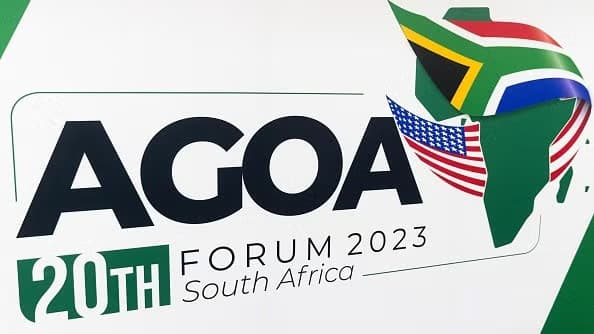We're loading the full news article for you. This includes the article content, images, author information, and related articles.
Former Roots Party deputy presidential aspirant Justina Wamae advocates for enhanced continental trade and infrastructure development following the expiration of the African Growth and Opportunity Act (AGOA).

Lamu, Kenya – Justina Wamae, former Roots Party deputy presidential aspirant, has urged African nations to leverage the recent expiration of the African Growth and Opportunity Act (AGOA) to bolster continental integration through significant infrastructure projects. Wamae's statement, released on Tuesday, October 7, 2025, emphasizes a strategic shift towards strengthening intra-African trade and reducing reliance on external trade frameworks.
The AGOA agreement, enacted in 2000, provided eligible sub-Saharan African countries with duty-free access to the U.S. market for over 1,800 products. These included value-added goods such as apparel, fish, and dried fruits. The agreement officially lapsed on September 30, 2025.
Wamae's proposition suggests that the lapse of AGOA presents a unique opportunity for African countries to re-evaluate their economic strategies and prioritize regional cooperation. By focusing on major infrastructure initiatives, African nations could facilitate smoother trade flows within the continent, create new markets, and foster economic resilience.
The African Growth and Opportunity Act was a cornerstone of U.S. trade policy with sub-Saharan Africa for over two decades. Its primary aim was to promote economic development and reform in eligible African countries by granting preferential access to the U.S. market. The agreement played a significant role in boosting exports from several African nations, particularly in sectors like textiles and agriculture.
The expiration of AGOA has prompted discussions among policymakers and stakeholders regarding the future of Africa's trade relations. While some analysts anticipate potential disruptions to existing trade patterns, others, like Wamae, view it as an impetus for African countries to forge stronger internal economic ties and develop self-sustaining trade mechanisms.
The development is expected to influence near-term public debate and policy execution across the continent. Stakeholders are urging clarity on timelines, costs, and safeguards related to new trade frameworks and infrastructure projects. The focus is now shifting towards how African governments will respond to this change and what new policies will be implemented to mitigate any adverse effects and capitalize on new opportunities.
Wamae's call for continental integration aligns with the broader objectives of the African Continental Free Trade Area (AfCFTA), which aims to create a single market for goods and services across Africa. The AfCFTA, which began trading in January 2021, seeks to boost intra-African trade, promote industrialization, and enhance economic growth across the continent.
The immediate implication of AGOA's expiry could be a loss of preferential market access for certain African exports to the U.S., potentially impacting industries that heavily relied on the agreement. However, proponents of continental integration argue that this challenge can be transformed into an opportunity to diversify trade partners and strengthen regional value chains, ultimately leading to more resilient economies.
Observers will be closely watching how African governments and regional bodies, such as the African Union, respond to Wamae's call. Key areas of focus will include the development of new trade policies, the acceleration of infrastructure projects aimed at facilitating intra-African trade, and the implementation strategies for the AfCFTA to cushion against external trade shocks.
Keep the conversation in one place—threads here stay linked to the story and in the forums.
Sign in to start a discussion
Start a conversation about this story and keep it linked here.
Other hot threads
E-sports and Gaming Community in Kenya
Active 9 months ago
The Role of Technology in Modern Agriculture (AgriTech)
Active 9 months ago
Popular Recreational Activities Across Counties
Active 9 months ago
Investing in Youth Sports Development Programs
Active 9 months ago